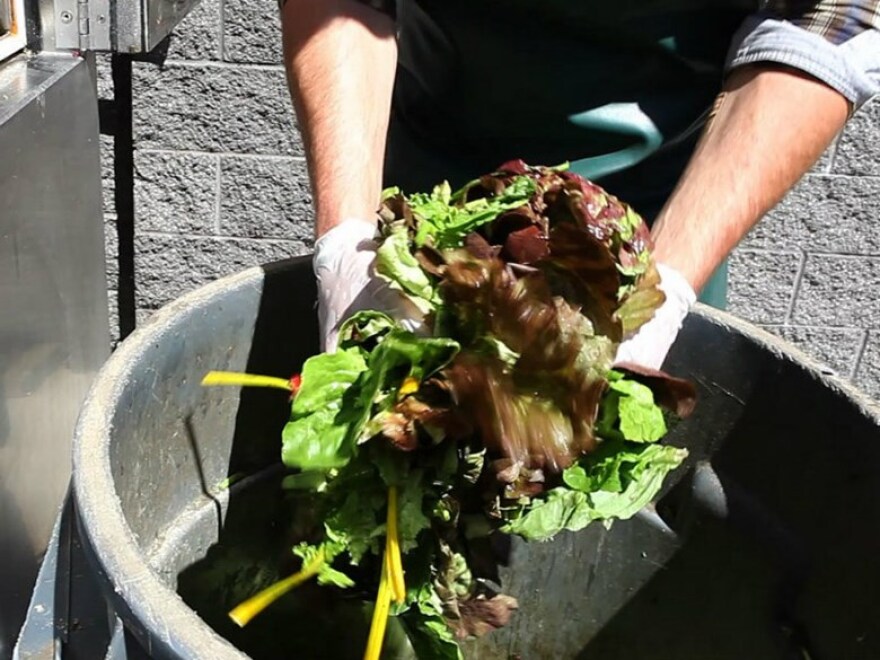CalRecycle will grant $11 million to 36 food banks and local agencies that connect surplus food to people who need it, and to companies focused on diverting food waste from California’s garbage stream.
Food waste makes up nearly 20 percent of the state’s overall waste stream, according to CalRecycle estimates. The Food Waste Prevention And Rescue Grant Program is funded by the state’s cap-and-trade program.
Much of the funding will go toward refrigeration, storage and transportation, which are three huge costs for food banks and the local agencies they supply.
The $11 million to support food recovery, which CalRecycle announced last Thursday, is a meaningful step, said Andrew Cheyne, director of government affairs for the California Association of Food Banks, which represents dozens of local food agencies throughout the state. But he says that California will need to do much more in order to meet its climate goals.
"The state's climate goals include diverting 20 percent of all edible food from landfill to people in need by 2025. And, to do that, we're going to need to increase this investment by orders of magnitude,” he said.
The California Association of Food Banks will ask CalRecycle to boost the food recovery grants from $11 million to $100 million next year, according to Cheyne.
Food scraps and plant material decompose in the garbage stream, releasing methane, a potent greenhouse gas. Many local governments offer residents a way to recycle organic materials, including food scraps. The city of Sacramento offers residential yard wastecollection, but that does not include food scraps.
Yolo Food Bank will receive $500,000 to equip its new warehouse facility. Sacramento Food Bank and Family Services will get $153,000 to pay for more refrigerated trucks and staff in order to increase storage of donated food.
Inadequate storage and refrigeration capacity at smaller, local agencies is a huge barrier for California’s food banks, said Blake Young, director of SFBFS.
Close to $500,000 in cap-and-trade funds will go to Misadventure & Co of Vista, which is 45 minutes north of San Diego. The company takes in donated bread products from food banks and turns them into vodka. The bread is considered “food waste” because it’s no longer consumable by food standards, said Sam Chereskin, the company’s co-founder.
Waste Not OC, a public-private coalition in Orange County, uses taxis to pick up edible, surplus food and deliver it to local 7-11 stores, where it is chilled overnight until food recovery organizations can pick it up in the morning. The organization will receive a grant of $492, 221 from the CalRecycle Food Waste Prevention And Rescue Grant Program.
Copyright 2019 Capital Public Radio


